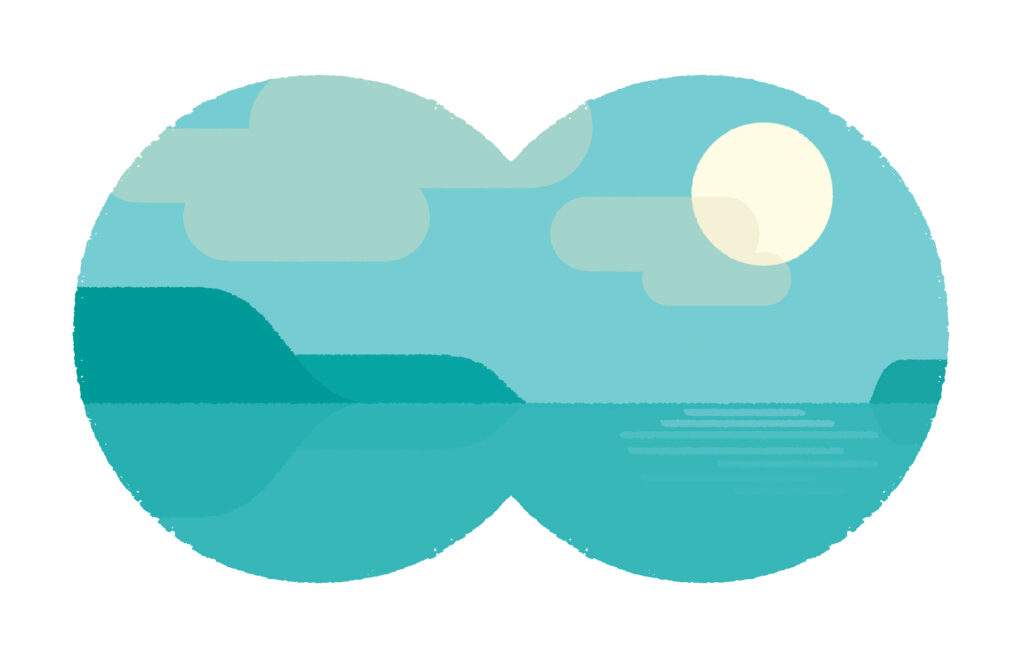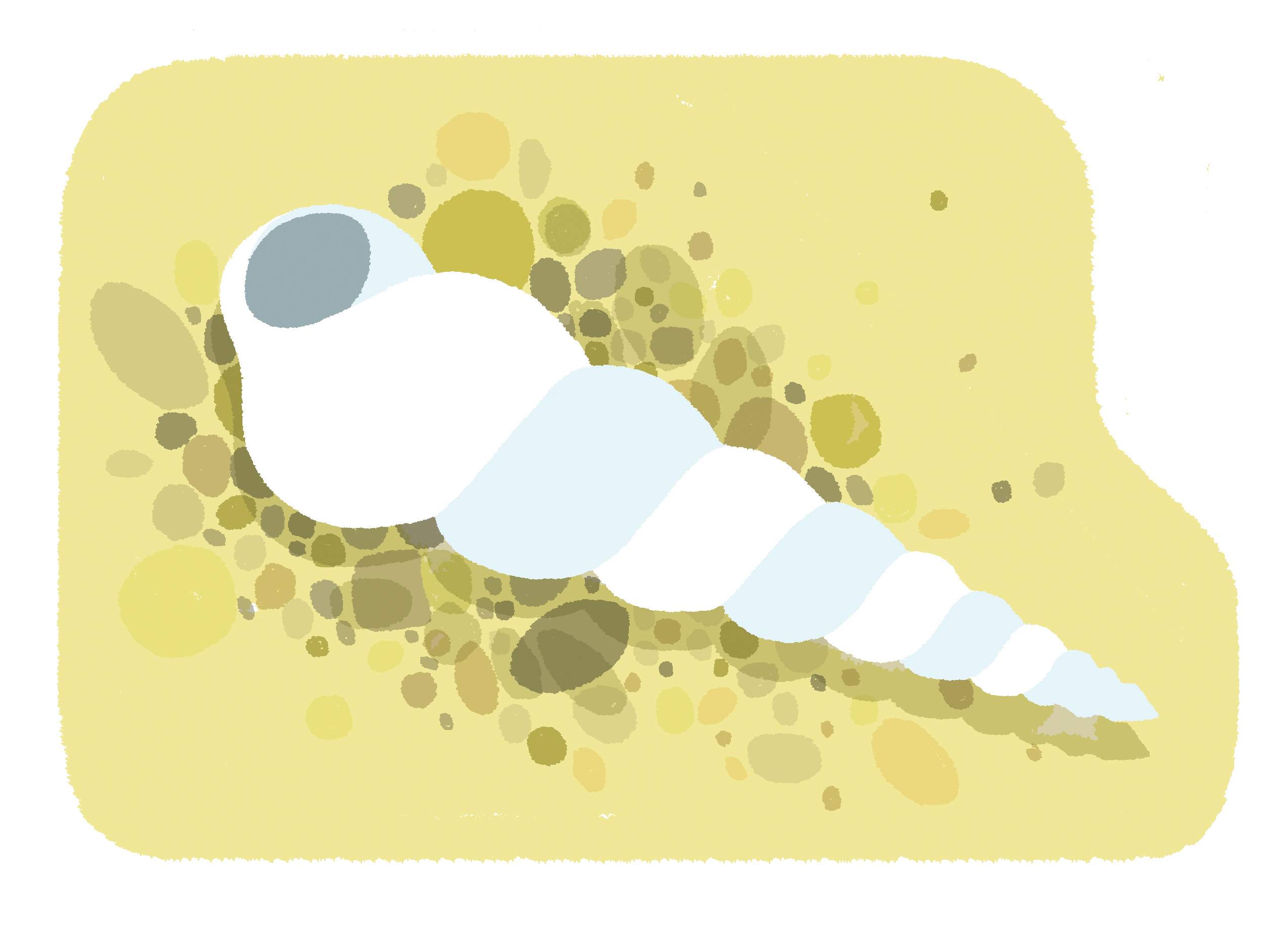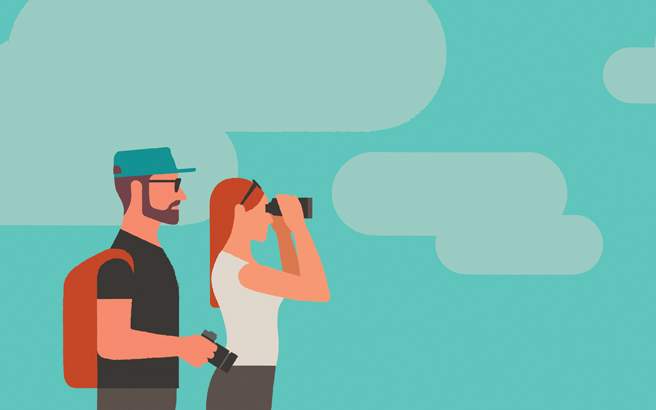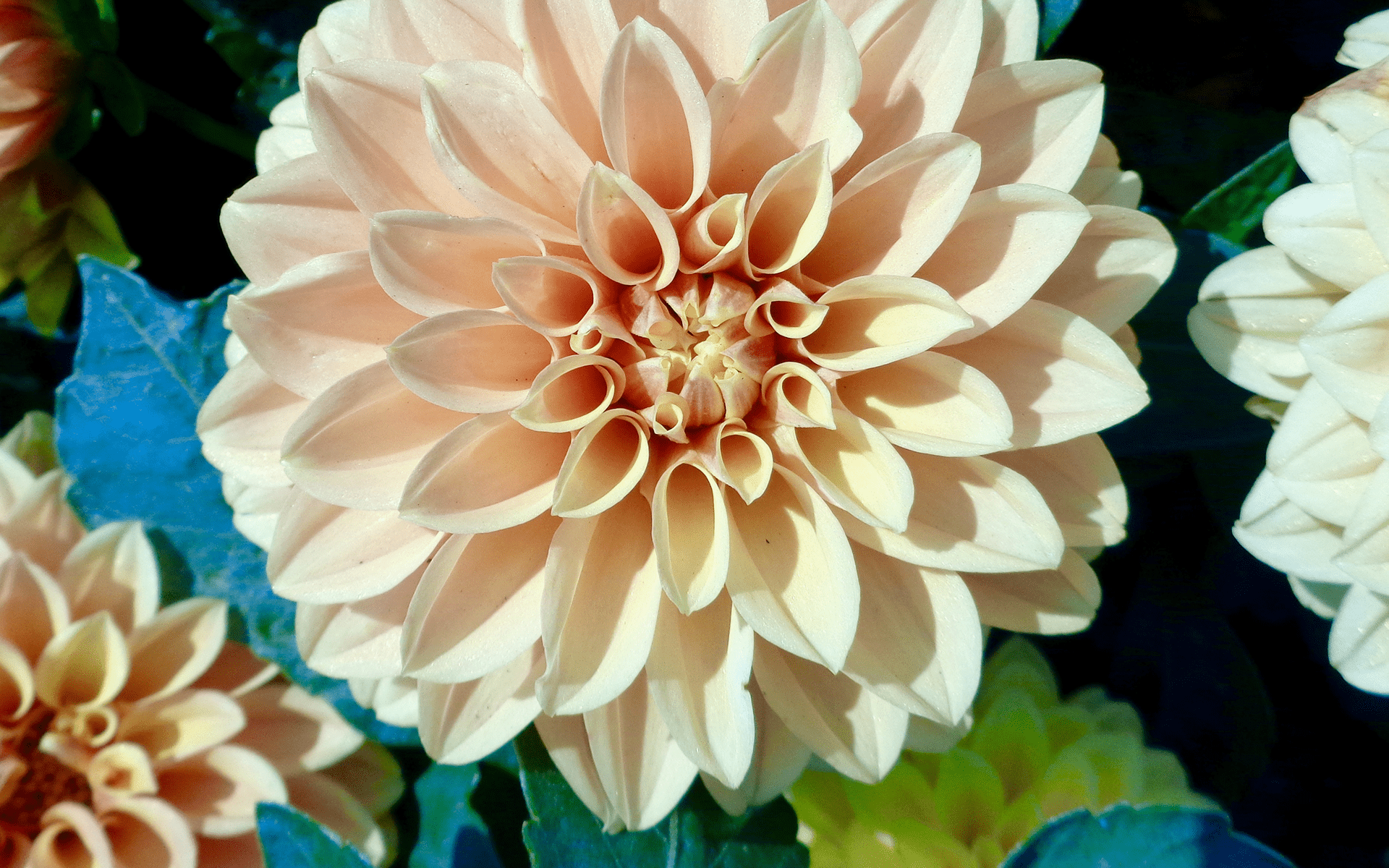The most common response I hear these days when I tell someone I teach meditation is “I’m so stressed out. I could really use some of that.” I am also amused to hear fairly often “My friend should really meet you!” I’m happy to see that meditation is known more and more as something that could be directly helpful in our day-to-day lives. Anywhere stress plays a role in our problems, meditation can have a potential role in its relief.
Meditation practice need not be tied to any belief system. The only necessary belief is not a dogmatic one, but one that says each of us has the capacity to understand ourselves more fully, and to care more deeply both for ourselves and for others. Its methods work to free us of habitual reactions that cause us great unhappiness, such as harsh self-judgment, and to develop wisdom and love. Meditation gives anybody who pursues it an opportunity to look within for a sense of abundance, depth, and connection to life.
Meditation’s methods work to free us of habitual reactions that cause us great unhappiness, such as harsh self-judgment, and to develop wisdom and love. Meditation gives anybody who pursues it an opportunity to look within for a sense of abundance, depth, and connection to life.
Rather than an ornate, arcane set of instructions, basic meditation consists of practical tools to help deepen concentration, mindfulness, and compassion.
1. Concentration

Concentration steadies and focuses our attention so that we can let go of unhealthy inner distractions— regrets about the past, worries about the future, addictions—and keep from being seduced by outer ones. Distraction wastes our energy; concentration restores it.
Concentration is the art of gathering all that energy, that stormy, scattered attention, and settling, centering.
We often experience our attention scattering to the four winds. We sit down to think something through or work through a dilemma, and before we know it, we’re gone. We’re lost in thoughts of the past, often about something we now regret: “I should have said that more skillfully.” “I should have been less timid and spoken up.” “I should have been wiser and shut up.” We aren’t thinking things through to find a means to make amends. We’re just lost.
Or our distractedness propels us into anxiety-filled projections about the future. Imagine you are sitting in an airplane at one of the New York City airports. Suddenly you start thinking, “Oh no, I think this plane might leave late. I’m sure it will be late. Now I’m going to miss my connection. What will that mean? That means I’m going to arrive in Portland, Oregon, after midnight. There won’t be any cabs! What’s going to happen to me?” It’s as though Portland were famous for having people vanish if they land after midnight!
Without concentration, our minds spin off into the future in a way that isn’t like skillful planning but more like exhausting rumination. When I see my own mind beginning that arc of anxiety, I have a saying I use to help restore me to balance: “Something will happen.” There will be a bus. I’ll spend the night in the airport. Something will happen. I can’t figure it all out right now.
Concentration is the art of gathering all of that energy, that stormy, scattered attention, and settling, centering. Someone came up to talk to me recently when I was teaching, protesting my use of the word concentration. He said it reminded him of repression, as though he were squeezing his attention onto something, resisting and resenting anything else that came up to pull his attention away. I asked him if steadying or settling would be good replacements, and he happily accepted them. That’s what concentration actually means. It’s not a forced, tense, strained effort. It’s letting things settle on what is at hand.
2. Mindfulness
Mindfulness refines our attention so that we can connect more fully and directly with whatever life brings. So many times our perception of what is happening is distorted by bias, habits, fears, or desires. Mindfulness helps us see through these and be much more aware of what actually is.

Imagine you’re on your way to a party when you run into a friend who mentions an earlier meeting he had with your new colleague. He says, “That person is so boring!” Once at the party, who do you find yourself stuck talking to but that new colleague! Because of your friend’s comment (not even your own perception), you end up not really listening carefully to them or looking fully at them. More likely you are thinking about the next 15 emails you need to send or fretting as you gaze about the room and see so many people you’d rather be talking to. Everything this person is saying increases your ire and frustration.
But if you realize what’s going on, it might be that you drop the filter of your friend’s comment and determine to find out for yourself, from your own direct experience, what you think of your new colleague. You listen, you observe, you are open-minded, interested. By the end of the evening you might decide, “I concur. I find that person really boring.” But perhaps not; life also provides many surprises. What’s important is that we’re not merely guided by what we’ve been told, by the beliefs of others, by dogma or prejudice or assumption. Instead, we shape our impression with as clear and open a perception as possible.
Mindfulness does not depend on what is happening, but is about how we relate to what is happening. That’s why we say that mindfulness can go anywhere. We can be mindful of joy and sorrow, pleasure and pain, beautiful music and a screech. Mindfulness doesn’t mean these all flatten out and become one big blob, without distinction or intensity or flavor or texture. Rather, it means that old habitual ways of relating—perhaps holding on fiercely to pleasure, so that, ironically, we are actually enjoying it less; or resenting and pushing away pain, so that, sadly, we suffer a lot more; or numbing out, disconnecting from ordinary, not very exciting experiences, so that we’re half in a dream a lot of the time. All these self-defeating, limiting reactions don’t have to be there.
We can easily misunderstand mindfulness and think of it as passive, complacent, even a bit dull. I was teaching somewhere recently and began the formal meditation instruction, as I often do, with the suggestion to simply sit in a relaxed way and listen to the sounds in the room. Someone raised his hand right away and asked, “If I hear the sound of the smoke alarm, should I just sit here ‘mindfully,’ knowing I’m hearing the smoke alarm go off, or should I get up and leave?” I responded, “I’d ‘mindfully’ get up and leave!”
I understood his question. When we hear phrases commonly used to describe mindfulness, like “just be with what is,” “accept the present moment,” “don’t get lost in judgment,” it can sound pretty inert. But the actual experience of mindfulness is of vibrant, alive, open space where creative responses to situations have room to arise, precisely because we’re not stuck in the well-worn grooves of the same old habitual reactions. In mindfulness, we don’t lose discernment and intelligence. These qualities, in fact, become more acute as stale preconceptions and automatic, rigid responses no longer rule the day.
3. Compassion
Compassion opens our attention and makes it more inclusive, transforming the way we view ourselves and the world. Instead of being so caught up in the construct of self and other and us and them that we tend to see the world through, we see things much more in terms of connection to all. This fundamental transformation from alienation begins with more kindness to ourselves.
Even in techniques that don’t particularly emphasize kindness or compassion, these qualities are inevitably being developed in meditation. If we go back and look at the foundational exercise I described, developing concentration, we find that it is often done by choosing an object such as the feeling of the in and out breath, then settling our attention on it. What we discover in the beginning, sometimes to our shock, is that it usually isn’t 800 breaths before our minds wander. More commonly, it is one breath, maybe two or three, then we are lost. Maybe very lost in a fantasy or memory.
Then comes the moment we realize we’ve been distracted. Our common response would be to feel that we’ve failed, to rail against ourselves. What we practice, though, is letting go gently rather than harshly and returning to the breath or our object of concentration with kindness and compassion for ourselves. Thus, those qualities of compassion and kindness deepen even if we don’t give voice to those words.
And what we do for ourselves, we can also begin to do toward others. A few years ago I was on my way to Tucson, but my plans were challenged when I found myself in an airplane sitting on a runway for four and a half hours at La Guardia Airport. Looking back on it, I sometimes refer jokingly to those hours as “the breakdown of civilization.” It was hot, and it grew hotter. After a point, people starting yelling, “Let me off this plane!” The pilot resorted to getting on the PA system and saying sternly, “No one is getting off this plane.”
I wasn’t feeling all that chipper myself. I couldn’t get in touch with the people in Tucson who were supposed to pick me up at the airport, and I was concerned about them. I had an apartment to go to in New York City and kept thinking, to no avail, “I can just go back there and try again tomorrow.” I was hot. I felt pummeled by the people shouting around me.
Then I recalled an image that a good friend of mine, Bob Thurman, author of Infinite Life: Seven Virtues for Living Well, often uses to describe the flow of kindness and compassion that comes from seeing the world more truthfully. He says, “Imagine you are on the New York City subway, and these Martians come and zap the subway car so that those of you in the car are going to be together…forever.” What do we do? If someone is hungry, we feed them. If someone is freaking out, we try to calm them down. We might not like everybody or approve of them, but we are going to be together forever. So we need to respond with the wisdom of how interrelated our lives are—and will remain.
Sitting on that airplane, I recalled my friend’s story. I looked around the cabin and thought, “Maybe these are my people.” I saw my worldview shift from “me” and “them” to “we.” The claustrophobia eased.
In terms of meditative understanding (in contrast to our usual way of thinking, which might regard these qualities as gifts we can do nothing to cultivate or as immediate emotional reactions we enjoy but can’t stabilize), kindness and compassion are indeed skills we develop. Not in the sense of forcing ourselves to feel, or even worse, pretend to feel, an emotion that is not there. Instead, if we learn to pay attention in a different, more open way—seeing the good within ourselves instead of fixating on what we don’t like, noticing those we usually ignore or look right through, letting go of categories and assumptions when we relate to others—we are creating the conditions for kindness and compassion to flow.
We practice meditation in the end not to become great meditators but to have a different life. As we deepen the skills of concentration, mindfulness, and compassion, we find we have less stress, more fulfillment, more insight, and vastly more happiness. We transform our lives.
This article originally appeared in the April 2013 issue of Mindful magazine.
more from sharon salzberg
From Anger to Love: The Art of Self-Intervention
A practice to help you stop resisting your anger and relate to it with awareness, so you can free yourself from anger’s strangle-hold.
Read More
Mindful Live Q&A with Sharon Salzberg and Barry Boyce
Join us for live conversations and events featuring leaders in the mindfulness movement.
Read More
A Compassion Practice for Opening the Heart
A 15-minute meditation that begins by imagining yourself surrounded by a circle of the most loving beings, making generous offerings of love and goodwill to you.
Read More
Why Loving-Kindness Takes Time: Sharon Salzberg
It’s only after we’ve practiced many times that we’ll begin to notice a habit developing—namely, letting ourselves off the hook once in awhile.
Read More












